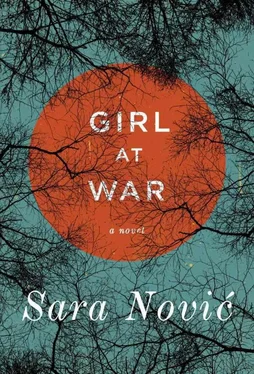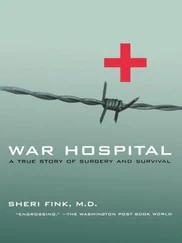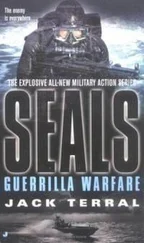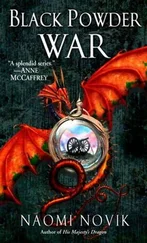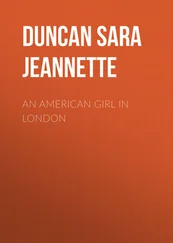“Stanfeld,” I said.
“Yes, how did you — Ana?”
“Petar has trouble.”
“Where is he?”
“Četniks,” I said. “The big road.”
“Is he hurt?”
“I don’t know.”
“Shit.” She spoke into a walkie-talkie strapped to her upper arm, a series of numbers and something I couldn’t understand. Then to me she said, “Don’t worry, they’ll take care of him. Now let’s get you on this plane.”
—
At the airport, Peacekeepers were guarding all entrances. I handed her the envelope Petar had given me.
“Money inside,” I said.
“Hopefully we won’t need it.” She squinted at the guard by the front. “No, not him.” I followed her to the next gate. “Nope.” Then, at the back gate, “That’ll work.” She pulled the elastic from her ponytail, and her hair came down around her shoulders in blond waves.
“Hey, you,” she said, and the guard looked up, startled.
“Oh, hey, Sharon.”
“Mind swiping me through? We’re gonna be late for transport.”
“Who’s the kid?”
“She’s my SFF…AF-6. I told you about her, remember?”
“SFF—” He looked confused. “Does she have a pass?”
“Of course she does,” Stanfeld said. “But I had a blond moment and left it in my luggage. If you swipe us through I could get it and show it to you.”
“Well—”
“You’re the best,” she said. She took another step toward him, too close. He slid his pass through the scanner and let us in.
“Idiot,” she said when we were out of earshot. We crouched behind a generator and she retied her hair. Before the war, the airport in Otočac had been recreational, and I could see where a chunk of runway, dirt-packed, had been added to accommodate larger aircraft. I studied the plane, a stubby green cargo transport. I’d never been on a plane before, and this one looked much too fat to take off. A Blue Helmet opened the cabin latch, a door with built-in stairs, then stepped off for a smoke. Ms. Stanfeld squeezed my hand, and we ran across the tarmac.
Inside it was not what I thought a plane would look like; there were no seats, only benches, green netting on the wall to hold on to, and stacks and stacks of boxes.
“Sit here.” Ms. Stanfeld led me behind an assembly of wooden crates.
“Will Petar be okay?”
“I sent some people for him. Now don’t make another sound until we’re in the air.”
“Then what?” But there were voices by the stairs, other Blue Helmets boarding, and she stood abruptly, not wanting to be seen conversing with munitions.
When the plane took off my stomach roiled and my ears popped, but I stayed hidden and unmoving, eyeing the rifle clips through the slatted crates. Eventually the turbulence evened out, and, bored and emboldened by the thrum of the engine, I slid my hand through an opening and grabbed one of the magazines. I rejigged my grip until I could pull the clip out through the hole, loading and unloading it unthinkingly. The repetitive motion calmed my stomach and my nerves.
“What’s that noise?” I heard someone say, and I froze.
“What noise?” Stanfeld said a little too fast.
“It sounds like it’s—” The voice was closer now. “What the fuck?” I looked up at the Blue Helmet in terror, and he stared back at me with equal distress.
“It’s okay. She’s authorized,” Stanfeld said. “Come here, Ana. Come sit by me.” She dug my passport out of the envelope. “See? American visa.”
The other Peacekeepers stared at her. I sat down beside her and returned to my loading and unloading of the cartridge.
“Still, I trust that you all have the sense not to — Ana! What the hell are you doing? ”
“She’s fast,” one of the Blue Helmets said.
“Where did you learn how to do that?”
“I just know,” I said.
She readjusted her helmet, loosening the strap around her neck. “I trust all of you have the sense not to say anything about this. For appearances’ sake. Wouldn’t want to get poor Johnsen in trouble for an egregious failure to complete security check protocol.” Everyone looked at one of the Blue Helmets down the row.
“You fought in that village, didn’t you?” Stanfeld said.
“A little.”
She yanked the clip from my hand and stuffed it in her cargo pocket. No one spoke again until the landing gear protracted in a dull rumble beneath our feet.
“Are you sure this is the place?” Luka said.
I fumbled with my seat belt and got out of the car. “The sandbags were right here. And they had a tree across the other side of the road.” Luka got out of the car, too, and stood beside me. “My dad was driving, and the one guy with rotten teeth stuck his head in our window and he had his gun—” I touched the spot on my neck where the soldier had pressed his gun against my father.
“It’s okay.”
“It was my fault, you know. I made them stop for lunch. If we hadn’t, we might have made it back before the block.”
“You were ten. You didn’t make anyone do anything. And nobody could have known.”
I looked into the forest, but it was too shadowy inside to see anything.
“It’s over,” Luka said.
“It doesn’t feel over.”
We pushed into the roadside brush — scrubby ragweed, cleavers, and what looked like Christmas holly scratched my ankles. Then the bigger trees — towering pine and oak — overtook the shrubbery. Soon the canopy had filtered out most of the summer sun, and a cool mist hung in the lower branches. It smelled of earth and decomposition.
From far away I had hated this place, but now even that was blurring. The hatred was there, but there were other feelings, too: excitement, almost giddiness, and the strange calm of being close to my parents again.
The woods grew darker, then thinned, but when we reached the clearing it was not how I remembered it. The trees were all wrong, the forest floor different from the way I’d imagined it. The lush summertime green of the foliage confused me. The place was alive, almost pretty.
Across the clearing I spotted a tree stump, the clean, even slice the only evidence a human had been there. I scanned the area for traces of massacre, a concavity or rise in the earth suggesting interment. But there was nothing. Only dark clay ground, damp from the forest shade.
“I’ll never find them.” I ran my fingers along the tree beside me, its ashen bark ridged and fissured, a history of weathered storms on display. A beetle ran down a groove in the trunk and disappeared in the dirt.
I sat down cross-legged and raked my fingers over the ground, let the soil collect under my nails. A few acorns, still green, had fallen too early, and I took one and buried it in the furrow I’d dug.
“Where are you?” I shouted. A flock of starlings, startled by the noise, shot up from a branch and out beyond the forest.
“Ana?” I’d nearly forgotten Luka was there, and when I turned toward him I got the feeling I’d been sitting there much longer than I realized. “You all right?”
My knees cracked as I stood and wiped my hands on my shorts. “Yeah,” I said. “I’m okay.”
—
We returned to the car and I pulled a U-turn across the highway and drove back to the little road, then followed the stony path down into the valley.
The village was no longer a village — anything that had once made it deserving of the title, including residents, was long gone. Most of the buildings had been reduced to rubble, collapsed slabs of concrete. The few that were still standing were all the eerier for it; the glass was blown out, but nothing was boarded up, leaving hollow sockets where the windows had been.
Читать дальше
